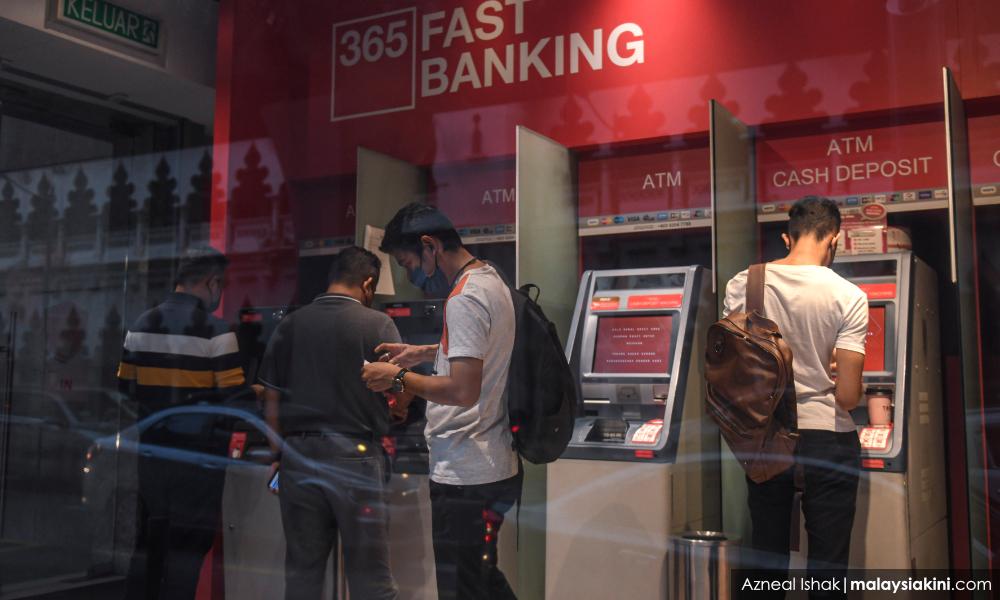On July 9, 2024, the Penal Code (Amendment) bill 2024 was tabled in the Dewan Rakyat for the first reading.
The very next day, the bill was discussed and debated with little time given to scrutinise it and, to our horror, the amendments were expressly passed.
The bill seeks to introduce a new offence that will affect all bank account holders in Malaysia. It is understood that the bill was tabled to combat online scammers and fraudsters.
The proposed Section 424B is as follows:
“Whoever, directly or indirectly, without lawful authority or lawful purpose, gives possession or control of his payment instrument or his account at a financial institution to any other person, shall be punished with a fine of not less than RM10,000, but not exceeding RM100,000, or with imprisonment for a term of not less than one year, but not exceeding seven years, or both”.
Intention does not matter
It is a well-established criminal law principle that mens rea (Latin phrase for “guilty mind”) is usually one of the essentials of a crime. A person cannot be convicted of an act if the act was carried out without a guilty mind or intent.
However, the Penal Code (Amendment) bill 2024 seeks to introduce a new Section 424B that omits mens rea. In other words, a person can be convicted even though he or she has no knowledge of the scams and genuinely believes that the bank account was used for a lawful purpose.

Strict liability offences require no blameworthiness on the part of the accused. The prosecution is exempted from the responsibility of proving that the accused had carried out the act with a guilty mind or intent, which is one of the elements in criminal law offence.
There are voices that support this new amendment as a form of punishment for scammers. These voices see people (such as pensioners) who have suffered great loss as victims.
They consider the bank account holder as a scammer because it is the money transferred into the bank account that must be taken by the account holder.
But did the account holders really receive the money?
We have over the years handled many cases involving mule account holders and we would like to raise the following concerns.
Victims or scammers?
Bank account holders give their access to third parties under various circumstances. The following scenarios are some cases handled by lawyers in court:
Scenario A - Joyce, a 35-year-old housewife was asked by her former classmate, Jane to open a bank account. Joyce and Jane have known each other for more than 20 years.
To open a bank account, Joyce needed cash and a valid phone number. The phone number would be used for online banking. So, Jane gave RM100 and a new phone number to Joyce.
Joyce managed to open five bank accounts and she gave access to those bank accounts, namely the ATM cards, login names, login pictures, and passwords to Jane.

In return, Joyce received RM500 from Jane as a transportation allowance.
When Joyce was arrested by the police a few months later, Jane broke off her relationship with Joyce.
Scenario B - Ian, a 40-year-old driver, faced financial problems in his business. He found an advertisement on Facebook that a loan could be offered to him without full documentation and a credit check.
Ian clicked on the Facebook ad and was directed to one Zoey’s WhatsApp number. Zoey claimed her company could approve the loan but Ian must provide his bank statement.
Ian’s bank statement showed several transactions and a very low balance. Zoey told him that a bank statement with multiple deposits would have a higher chance of getting a loan.
She told Ian to open a new bank account and she would help Ian to manage it. Ian opened a new account at a local bank and deposited RM20 into it.

Ian then couriered the ATM card to Zoey along with his online banking username and password. Zoey admitted to receiving the ATM card and told Ian that the company would need a few days to process the loan. Ian hasn’t heard from Zoey since.
Scenario C - Hana, a 24-year-old marketing executive has chatted with Sadee via WhatsApp for almost three months.
One day, Sadee told Hana there was a problem with his bank account and that his account had been blocked. Sadee couldn’t receive his salary and he needed Hana to help him to open a bank account.
Without hesitation, Hana opened a bank account at a local bank. She put RM100 into the new account.
Hana then met Sadee for the first time at a shopping mall. She gave Sadee her ATM card, login username, and password. Hana and Sadee continued to chat via WhatsApp.

However, when Hana was arrested by the police a few months later, Sadee couldn’t be contacted.
Scenario D - Fatihah, a 45-year-old kitchen assistant had a son with autism.
A man visited Fatihah with a basket of fruits and food. He claimed he was a representative of an NGO and he could help Fatihah get welfare benefits for her son from a government agency.
He told Fatihah the funds would be transferred to Fatihah’s account at ABC bank. Fatihah’s ABC account had been inactive for many years.
The man told Fatihah he could help her if she gave him her ABC Bank ATM card. Fatihah gave her card to the man. She has never seen or heard from the man since.
These are real cases and names have been changed to protect the privacy of those involved.
Upon arrest, the account holders above found out their bank accounts were used as mule accounts. There were several police reports lodged against them.
Their bank statements showed multiple deposits and withdrawals within days. Thereafter, their accounts were frozen by the banks because of suspicious activity.
Money was deposited by different individuals either via cash deposit machines or online transfer with different remarks, such as purchase printer, online shopping, etc and from different locations.
Money was transferred out from the bank accounts online, almost instantly, after the funds were deposited.
During the investigation, the police did not take into account the story of the account holders.
Senate must reject bill
As we were making this appeal, we were notified that the bill had already been passed in the Dewan Rakyat. We therefore urge the Dewan Negara to review the bill, digest its consequences, and reject this bill.

If this bill is made into law, the marginalised will be the most impacted and it will not resolve the issue of the real scammers.
As a start, the government should provide statistics as to how many real scammers and mule account holders have been prosecuted. The real scammers need to be punished and not the victims, including mule account holders. - Mkini
This statement is endorsed by the following lawyers:
Asiah Abdul Jalil
Azira Aziz
Chan Yen Hui
Chong Kar Yan
Dzvuriyah Velajit Hussein
Farida Mohammad
Kohila Yanasekaran
Kithiraj Rajasundram
Lailawati Husain
Muthuveeramani Nadesan
Melissa Sukri
Samantha Chong
Shashi Devan
Goh Cia Yee
Vince Tan Hoo She
Dahlia Tan Pui San
Kelvin Ho Kok Weng
Davey Wan Guan Hui
Christopher Guo
Cyrus Tiu Foo Woei
The views expressed here are those of the author/contributor and do not necessarily represent the views of MMKtT.

No comments:
Post a Comment
Note: Only a member of this blog may post a comment.